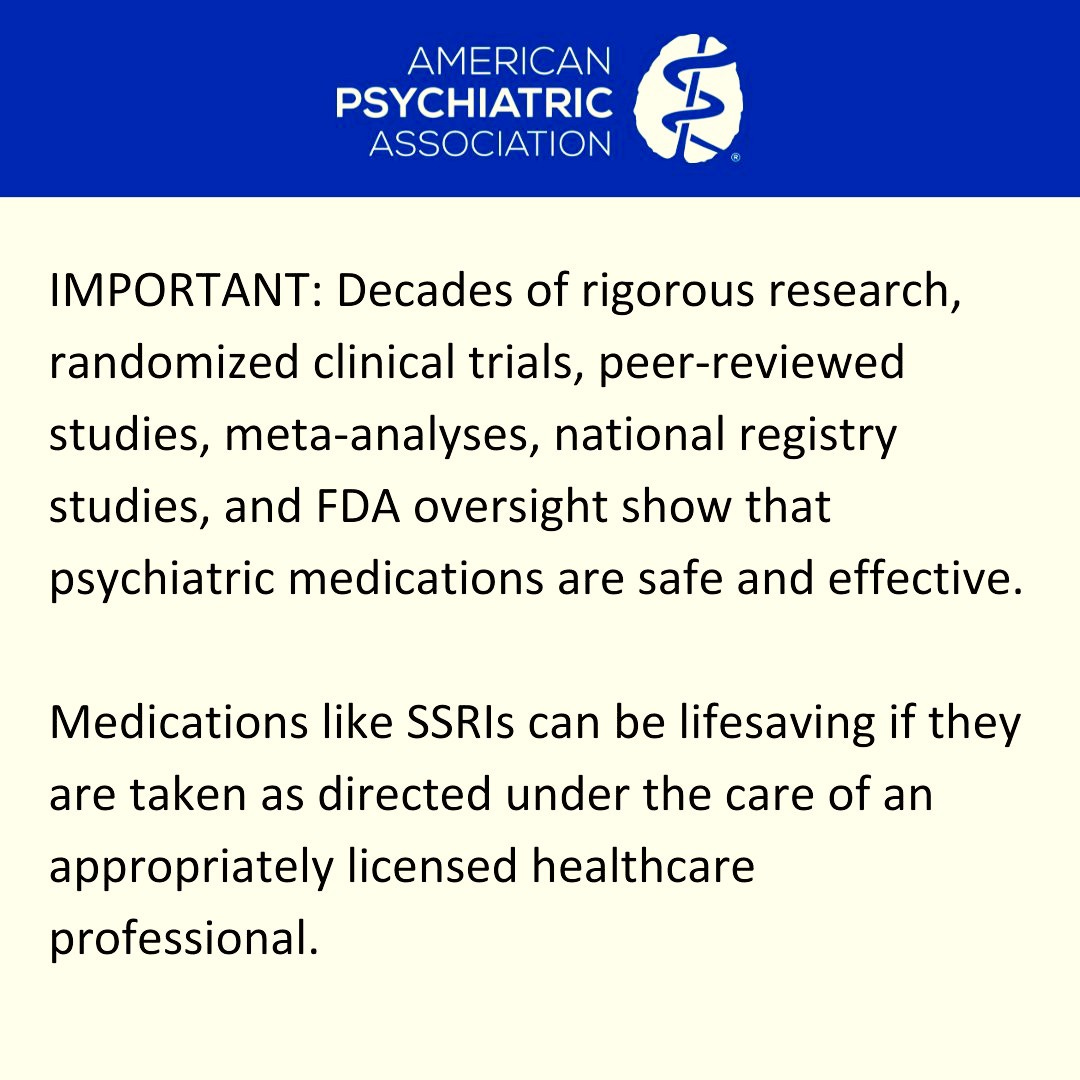Statement on the Use of Psychiatric Medications
Psychiatric medications are not risk-free, universally effective, or right for every person
On Aug 28, 2025, the American Psychiatric Association (APA) issued a brief statement on X (formerly Twitter) assuring the public of the efficacy and safety of psychiatric medications, likely in response to some provocative assertion by RFK Jr. This is the statement in its entirety:
“IMPORTANT: Decades of rigorous research, randomized clinical trials, peer-reviewed studies, meta-analyses, national registry studies, and FDA oversight show that psychiatric medications are safe and effective. Medications like SSRIs can be lifesaving if they are taken as directed under the care of an appropriately licensed healthcare professional.
Learn more: https://ow.ly/RWEQ50WNJeI”
I sighed when I saw this statement. It goes counter to the recommendation I had made to my colleagues in a New York Times opinion piece in May of this year. I had written:
“The public deserves advice about psychiatric medications that does not oscillate between stupor and alarmism. Antidepressants, like all medical interventions, come with benefits and trade-offs. If psychiatry refuses to engage seriously with patients’ concerns, if the mantra of “safe and effective” is all it is willing to publicly say, it will lose credibility. We cannot disregard those whose lives have been derailed by psychiatric medications.
This political era has revealed that the aggrieved would rather burn the system to the ground than put up with an establishment that does not speak to their everyday realities. The question is whether the medical establishment will meet that demand with humility and scientific transparency — or leave the conversation to those willing to exploit the suffering of vulnerable individuals for their personal and political gain.”
You only have to scroll through the replies to that tweet to see how ineffective this statement is at reassuring the people who need to be reassured and at alleviating the concerns of those whose trust has been shaken.
What could a better statement have looked like? One that was trying to make some effort at repairing public trust?
Here’s my attempt:
Decades of rigorous research, randomized clinical trials, peer-reviewed studies, meta-analyses, national registry studies, and FDA oversight show that psychiatric medications are safe and effective. That is, when used for the right indications under the care of a qualified clinician, they are appropriate for clinical use based on standards that are applied across medicine, and the expected benefits render the expected risks acceptable to the average patient. This does not mean that psychiatric medications are risk-free, universally effective, or right for every person. Psychiatric medications allow many people to better manage their symptoms and live more functional lives; for some, the effects are transformative. Like all medications, they can also cause harm, including serious adverse effects in a minority. Some of these adverse effects, especially with long-term use, remain poorly studied. The public deserves access to psychiatric medications in a manner that pairs available evidence with person-centered care. Their use requires transparency about uncertainties, mechanisms, trade-offs, and alternatives. We support individuals and families making informed choices.
Would you phrase anything differently? Comments are open.
See also:





Sounds fair to me. What’s strange to me is that MAHA has some justified scepticism about psychiatric medication and its adverse effects, but absolutely no curiosity about the adverse effects of psychedelic drugs - which RFK wants to legalize within 12 months against the advice of the FDA. It just seems like institutionalized contrarianism - if SSRIS were available in a Costa Rican retreat and called Karmahuasca they’d be gobbling it up
As a psychopharmacology enthusiast, the actual truth about drugs is rich and fascinating. It's time to treat each other as intelligent and advance our shared scientific knowledge. People can handle sophisticated knowledge. This is evident from how much the public loves neurotransmitter stories. People have a thirst to learn about mental health, the public institutions should educate them, not treat them like children.